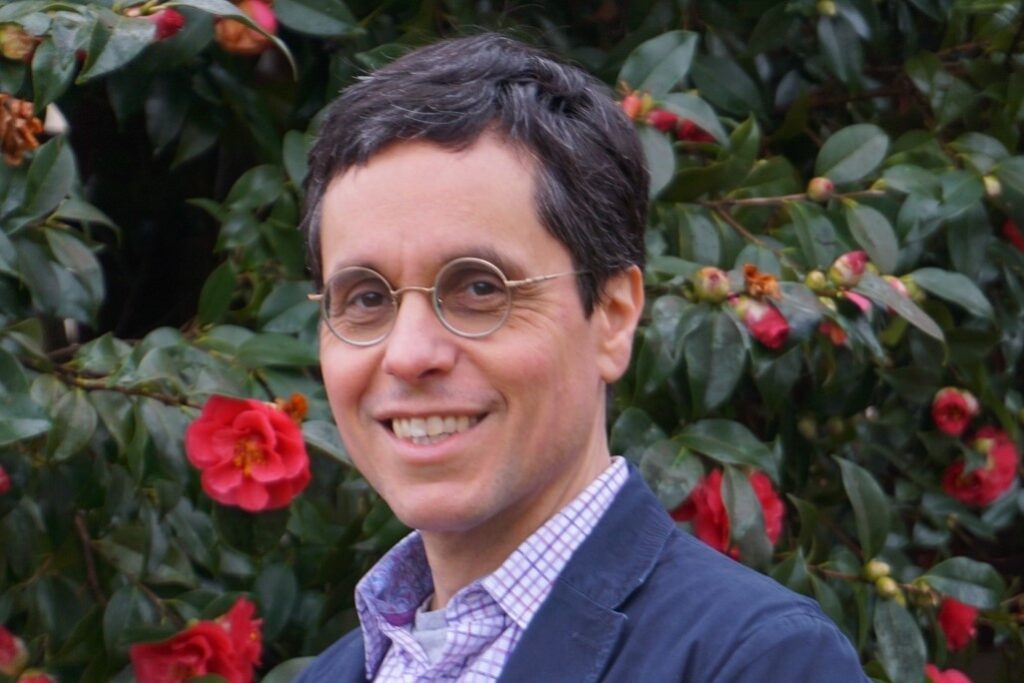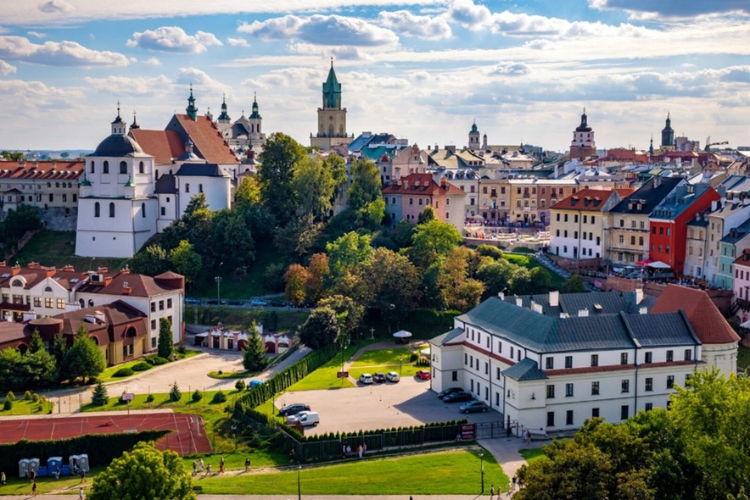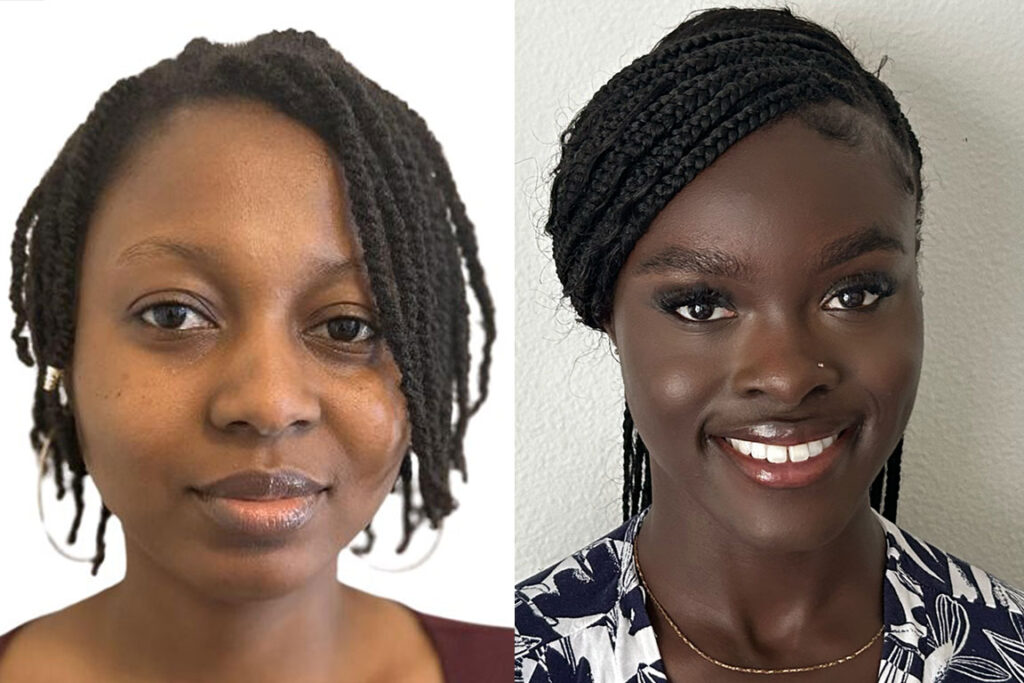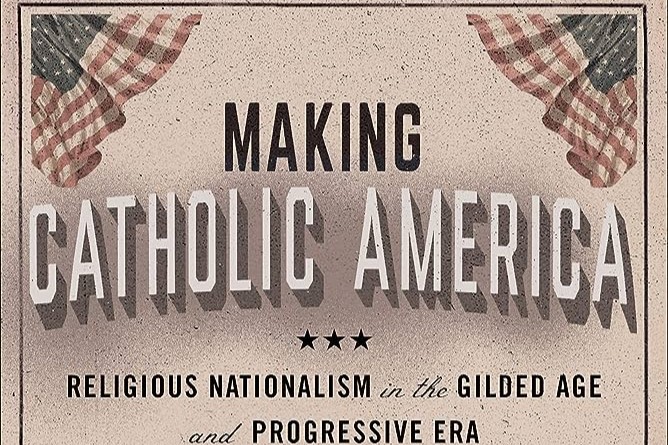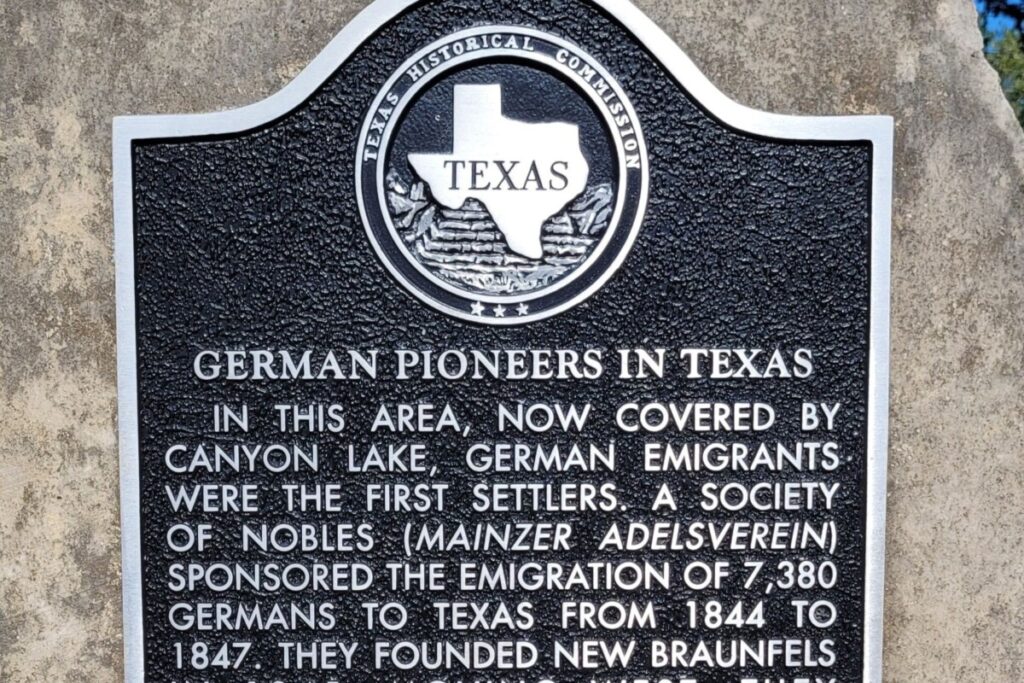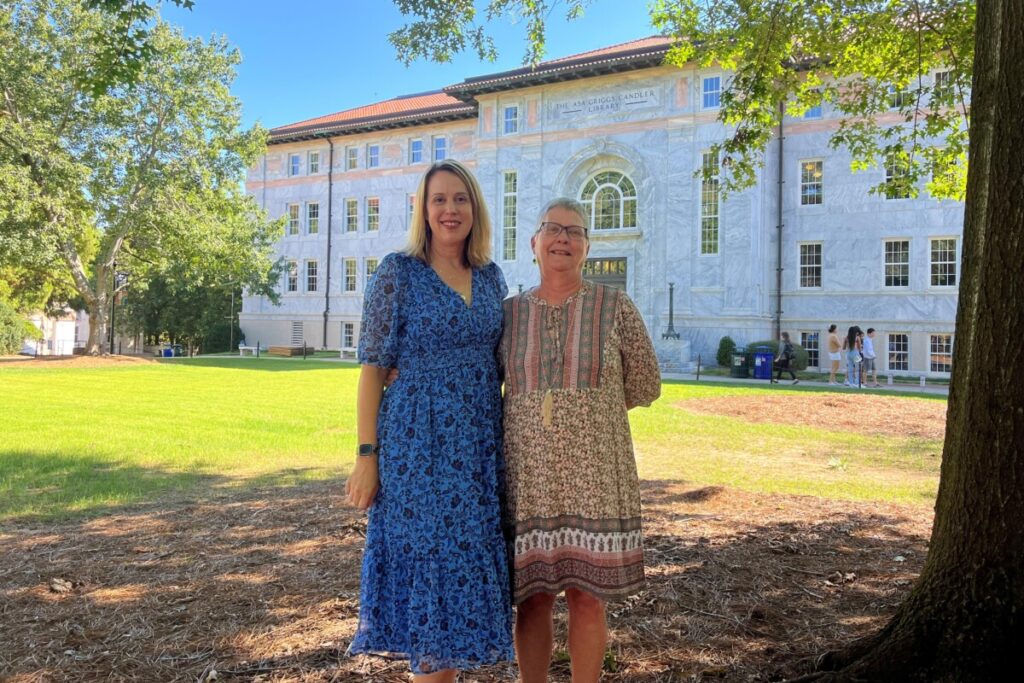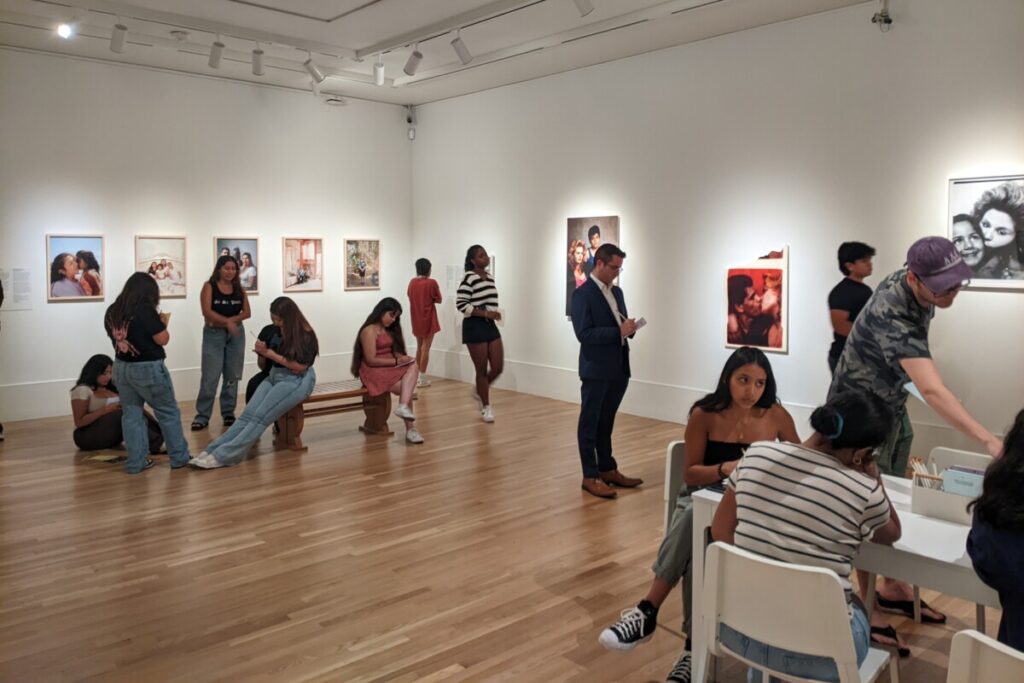
Dr. Yami Rodriguez, Assistant Professor of History, recently delivered opening remarks at the newest exhibit at the Michael C. Carlos Museum, titled “You Belong Here: Place, People, and Purpose in Latinx Photography.” A historian of Latinx communities, particularly those in the U.S. South, Rodriguez provided illuminating context for the exhibit by offering a chronology of relationships between Latinx communities in Atlanta and Emory University. Senior History major and Carlos Museum intern Cassandra Olivio, who worked with Rodriguez to secure the internship, created an interactive activity to accompany the exhibit. Read an excerpt from Rodriguez’s opening remarks along with a brief Q&A with Olivio about her experience below.
Yami Rodriguez, Opening Remarks (excerpt)
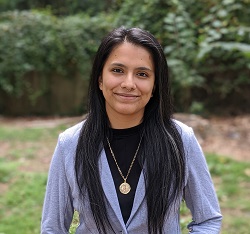
“The effort to showcase a Latinx photography exhibit at Emory led me to consider change over time, and how this exhibit contributes to a long legacy of students, staff, and faculty that have worked to highlight and make space for Latinx experiences and voices at this institution. I therefore want to briefly highlight the collaborative work that has been and continues to be necessary in order to make a statement like ‘You Belong Here’ ring true.
“In 1989, for example, Mariali Fuster, Maritza Ortiz and Gerardo Tosca, along with other students, were ‘primarily responsible for raising interest in having Emory celebrate’ Hispanic Heritage Month. A list of events included Spanish club meetings, lectures on US and Latin American history, and community meals. Three years later in 1992 members of the Latin American Awareness Organization (or, LATINO) at Emory had the stated goal of ‘bring[ing] together the Latino students and to educate both the Emory community and the Atlanta community-at-large about Latinos and Latin America.’ And just three years later a staff member explained in scrap notes how she ‘received more than 50 calls regarding the services and resources’ provided by the Office of Multicultural Programs and Services because many Latinx parents whose children had been accepted to Emory could not afford tuition. As the population of Latinx students at Emory grew at the turn of the century, so did awareness of the populations’ needs and, at times, demands. A Latino Task Force made up of students, staff and faculty established in 2000, for example, advocated for increased Latino student enrollment and staff increases, along with a call for establishing ‘Latino Studies.’ The call for Latinx Studies would be renewed in 2018 with student-led advocacy. Over the decades, Latinx academic, social, political, and cultural presence has shaped our Emory communities and the possibilities for inclusion on and off campus…The Latinx community today at Emory, in Metro Atlanta, and the South more generally, is diverse, multilingual, and actively in search of spaces that can speak to some aspects of this complex, constructed category we know as Latinidad. I’m hopeful that the Carlos Museum is one of many spaces on campus that can commit to maintaining a sustainable, non-extractive, and mutually beneficial relationship with Latinx communities at Emory and across Georgia as we seek to make our institutions more inclusive and representative of the worlds we move through.”
*Remarks were informed by archival materials in the Rose and research conducted by undergraduate student Arturo Contreras for his work on the “Consciousness is Power: A Record of Emory Latinx History.” Efforts to digitize this Fall 2022 pop-up exhibit are currently underway in our history course, “The Migrant South.”
Q&A with Cassandra Olivo, History Major and Carlos Museum Intern
How did you become an intern at the Carlos Museum, and how has this experience shaped your time at Emory?
I was able to secure my internship at the Carlos Musuem through the help of Professor Rodriguez. She informed me that the museum was looking for two students to create an interactive component for the exhibition, and I applied because she informed me that the knowledge and skills that I had acquired from my history courses could be applicable in the creation of this component.
As a student who must also work to be able to study at this institution, I have found it hard to make time to visit the museum; thus, this experience provided me with the opportunity to explore and interact with a space that I would have not engaged with otherwise.
Have you seen intersections between your role at the Carlos and your history coursework? How so?
Yes, I have. I have taken a few classes where we have discussed the forms of resistance used by enslaved people, and a piece by artist Joiri Minaya not only allowed me to see how art could be crafted to represent this history, but added to my knowledge because I learned that enslaved women in the Barbados used the ayogwiri plant to induce abortions because they did not want their children to be thrusted into slavery. This piece does an excellent job at displaying how art can be utilized as a medium that both communicates and educates the public about historical events.
The exhibit you worked on highlights themes of identity, community, and belonging, with the interactive you co-created for the exhibit asking visitors to reflect on these themes. Can you share a bit about how your own identity, community, and/or sense of belonging informed your work at the Carlos and your time at Emory?
As the daughter of Mexican-immigrant parents who can barely read and write in English, I wanted to design the interactive in a way, which included translating the questions into Spanish, that would feel inviting to these kinds of individuals. The silence that Latinx populations face does not result from the community’s lack of expression on topics, but rather the linguistic barriers that limit their self-expression. Growing up, I always viewed my upbringing as a limitation, but this internship has made me realize that my experiences allow me to be an effective advocate for the needs of the community.
There have been instances where I was the only person of Latinx descent in my class, and it felt isolating at times. This feeling compelled me to create a space where individuals would not only be able to reflect on their own experiences, but also read the stories of others similar to them and see that they were not alone.
